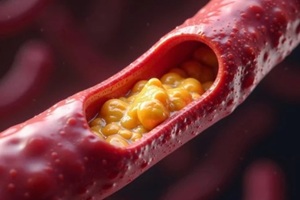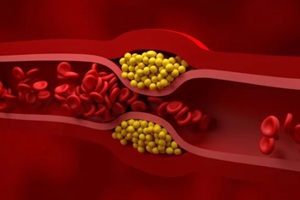 The connection between sugars and cholesterol often gets overlooked when it comes to dietary factors that influence high cholesterol levels. We tend to focus mostly on saturated fats and trans fats as the main culprits that raise LDL “bad” cholesterol and lower HDL “good” cholesterol. However, sugar may also play a significant role.
The connection between sugars and cholesterol often gets overlooked when it comes to dietary factors that influence high cholesterol levels. We tend to focus mostly on saturated fats and trans fats as the main culprits that raise LDL “bad” cholesterol and lower HDL “good” cholesterol. However, sugar may also play a significant role.
A Look at How Sugar Impacts Cholesterol
Glucose, fructose, and sucrose are different types of sugars that behave differently in your body and have varying effects on cholesterol levels. Added sugars, rather than naturally occurring sugars, appear to be particularly detrimental.
Research shows that increased added sugar consumption correlates with decreased HDL cholesterol. One study found a drop in HDL levels in children who consumed more added sugars. Another study showed that swapping added sugars for starch improved cholesterol numbers. Starch is a more complex carbohydrate that digests more slowly, allowing for better blood sugar control.
In addition to lowering HDL, added sugar intake further exacerbates cholesterol issues by raising triglyceride levels. Triglycerides are a form of fat that circulates in your blood after you eat. Having consistently high triglycerides damages artery walls and accelerates plaque buildup. The combination of high triglycerides, low HDL, and elevated LDL substantially increases your cardiovascular disease risk.
Other Ways Sugar Damages Heart Health
Beyond directly impacting cholesterol levels themselves, excessive sugar consumption inflicts damage through other mechanisms as well:
- Spiking blood sugar levels: Eating lots of refined carbs and added sugars leads to recurrent blood sugar spikes, which cause systemic inflammation and oxidative stress. This drives atherosclerosis development.
- Fatty liver disease: High sugar intake contributes to fatty liver disease, further raising cardiovascular risk.
- Weight gain: Sugary foods are very calorie-dense yet nutrient-poor. They promote overeating, fueling unwanted weight gain. Carrying excess body fat worsens cholesterol levels.
- High blood pressure: Heavy sugar consumption is implicated in the development of high blood pressure. Uncontrolled hypertension also accelerates atherosclerosis progression.
How Much Sugar is Too Much?
Authoritative health organizations, including the American Heart Association, recommend limiting your added sugar intake to a maximum of six teaspoons (100 calories) per day if you are a woman and nine teaspoons (150 calories) per day if you are a man. To put this into perspective, a 12-ounce can of soda contains nine teaspoons of added sugar, exceeding an entire day’s allotment.
Yet, surveys show that typical American adults consume a whopping 20 teaspoons of added sugars per day. This overconsumption boosts calorie intake without providing beneficial nutrients.
Getting Your Sugar Fix
 You need not totally eliminate sugar from your diet but should be mindful of sneaky sources, including juice, cereal, ketchup, and snack foods. When craving something sweet, choose whole foods, such as fruit or milk, which contain naturally occurring sugars, as well as vitamins, minerals, and fiber.
You need not totally eliminate sugar from your diet but should be mindful of sneaky sources, including juice, cereal, ketchup, and snack foods. When craving something sweet, choose whole foods, such as fruit or milk, which contain naturally occurring sugars, as well as vitamins, minerals, and fiber.
Dried fruits and 100% juice still retain nutrients, but their sugar content condenses during processing so they should be eaten sparingly. Above all, sweetened beverages such as soda and sweet tea should be minimized.
A Spoonful of Sugar Doesn’t Have to Spoil Your Cholesterol
Carefully monitoring your refined sugar intake allows room for the occasional small treat while keeping cholesterol and triglycerides from creeping up. Implementing a “sugar budget” helps rein in excess intake so that sugars don’t undermine the improvements to your cholesterol levels from heart-healthy nutrition and lifestyle habits. Here are some tips:
Learn to Spot Added Sugars on Labels
Scan nutrition labels closely, paying attention to the grams of added sugars contained per serving. Don’t forget that sugar goes by many names, including corn syrup, molasses, honey, and ingredients ending in “-ose”.
Satisfy Sugar Cravings with Fruit
When a sugar craving strikes, eating fruit helps hit the sweet spot with the added benefits of antioxidants, fiber, and nutrients. Berries, stone fruits, apples, and citrus fruits make nutritious choices over refined sugary snacks.
Don’t Drink Your Calories
Sugary sodas, juices, sweetened coffee drinks, and sweet teas impressively deliver calories, sugar, and zero redeeming qualities. Healthier options include sparkling water with lemon or lime, unsweetened iced tea, coconut water, or plain seltzer with a splash of juice.
Make Whole Grains Your Go-To Carb Source
Refined grains, such as white rice, bread, and cereals, quickly spike blood sugar levels. Whole grains, such as brown rice, quinoa, farro, and oatmeal, keep blood sugar steady thanks to slower-digesting complex carbs and fiber.
Schedule an Appointment with Our High Cholesterol Management Experts
 Small dietary tweaks that reduce added sugar intake create a gradual yet impactful positive change. Developing balanced eating habits not only directly improves cholesterol values but also instills lifelong heart-healthy behaviors.
Small dietary tweaks that reduce added sugar intake create a gradual yet impactful positive change. Developing balanced eating habits not only directly improves cholesterol values but also instills lifelong heart-healthy behaviors.
Imperial Center Family Medicine partners with patients to devise individualized nutrition and lifestyle plans targeting cholesterol reduction through sugar moderation alongside other dietary adjustments. Through compassionate listening, thoughtful guidance, and consistent follow-up, we empower patients to take control of their heart health.
Contact us today at 919-873-4437 or schedule a consultation online to discuss evidence-based nutrition approaches to improve cholesterol levels while still allowing life’s sweet moments.
